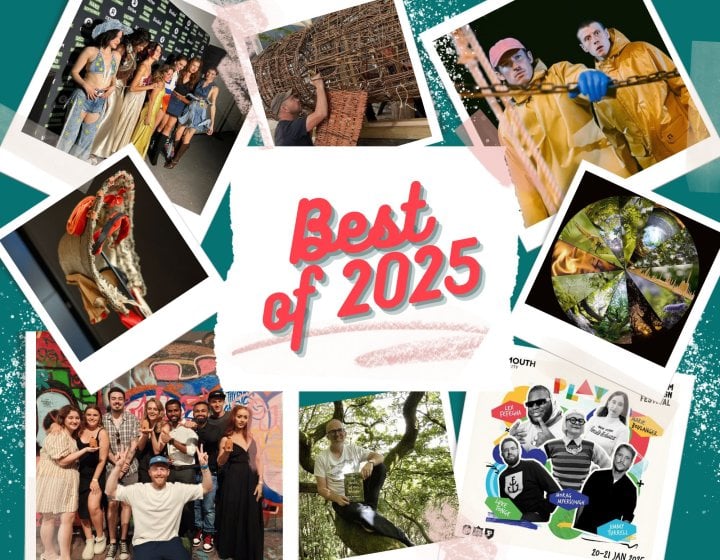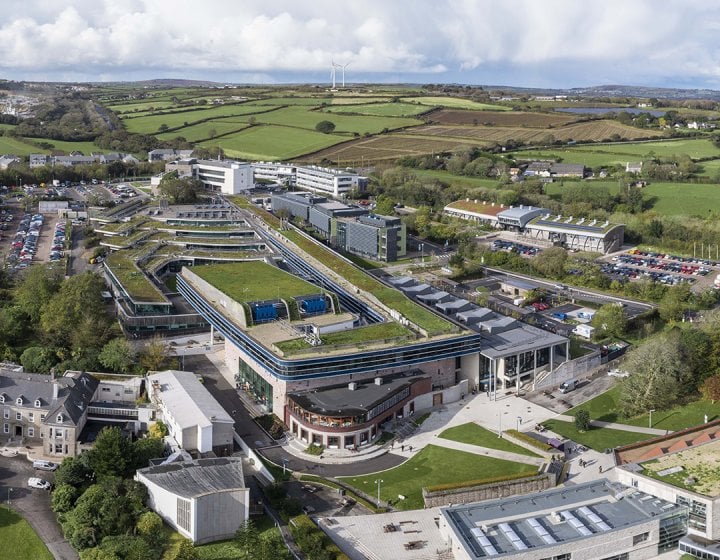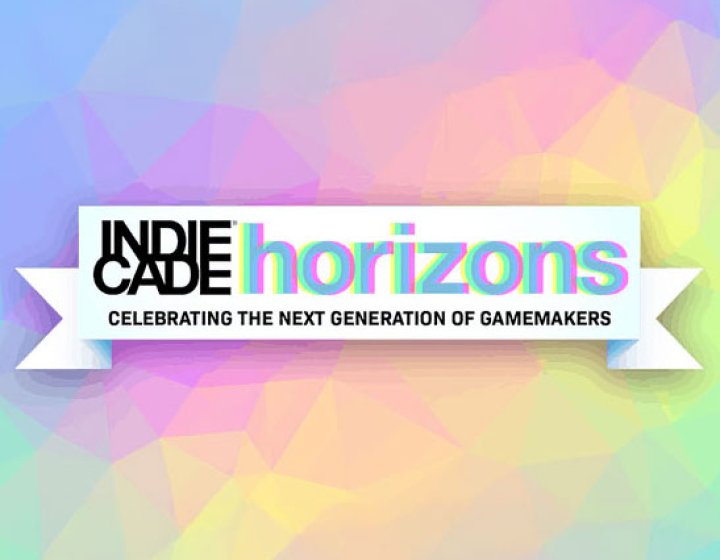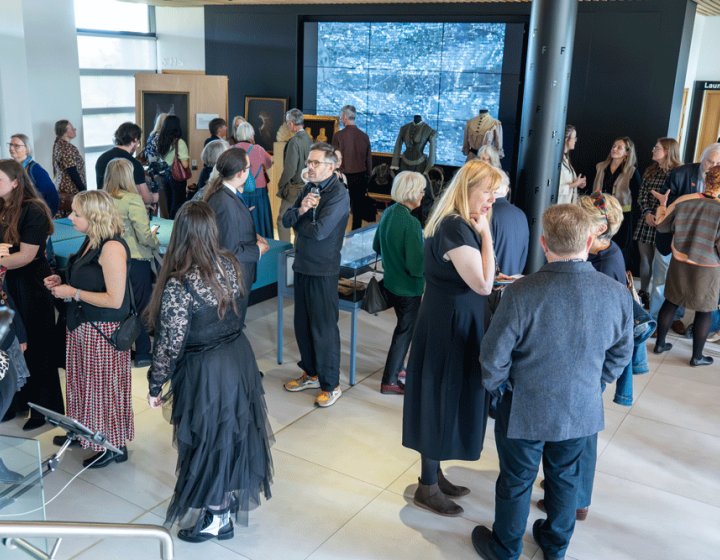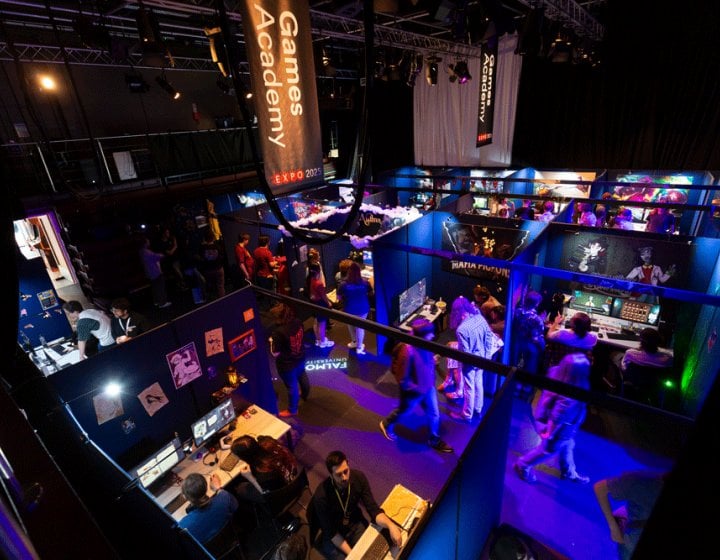Harnessing technology to make live events more inclusive
05 June 2023
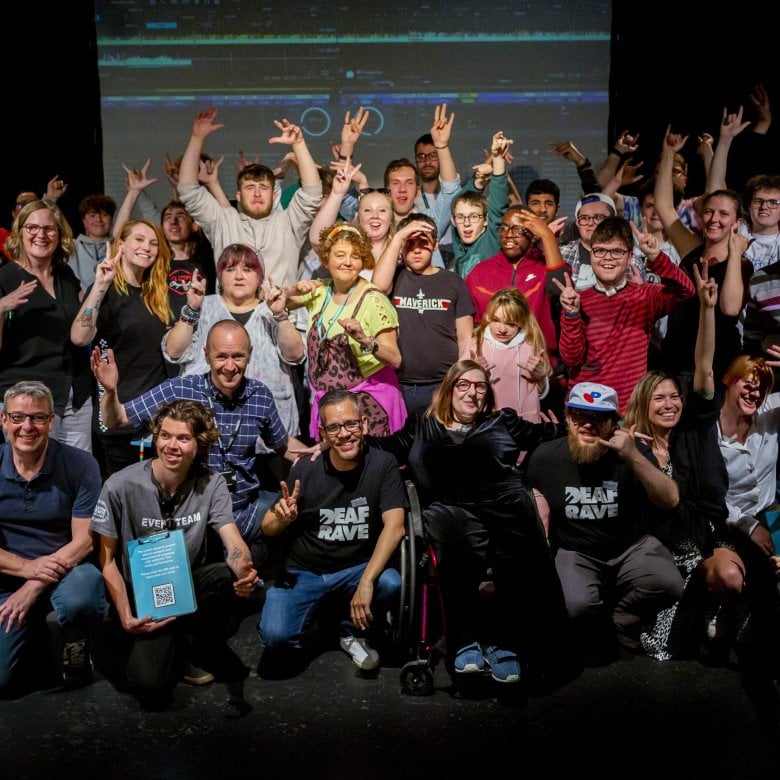
In May 2023, the Live Audience Accessibility & Augmentation knowledge exchange project hosted a series of events exploring how innovative tech can transform live music experiences for people who are deaf.
The Live Audience Accessibility & Augmentation (LAAA) project is a knowledge exchange and community engagement project led by Head of Business & Experience Design Adrian Bossey and delivered by Cornwall Business School in association with AMATA.
LAAA aims to evaluate audience experiences of engaging with authentic ‘live’ music performances, including those augmented with haptic technology which transforms sound into felt vibration. It is also providing subsidised places on the Attitude is Everything course to attendees from visitor attractions and/or music venues. This course is designed to improve industry practices around accessibility for people who are deaf or disabled at live events.
It was such an honour to be involved in this unique project for the live audience accessibility and augmentation of haptic and vibrations organised by Falmouth University.
Last month, the project ran a series of events across three days, where students, school groups and industry practitioners were invited to experience Beat Blocks - a new Bass flooring system that transforms sound into felt vibration - and attend thought-provoking talks and workshops.
Organiser and project lead Adrian Bossey said: “It was incredibly gratifying to see the LAAA Project come to fruition as a moving and truly thought-provoking way to consider ‘liveness’ in music performances and explore access to music for people who are deaf or disabled. It was a fantastic example of research led collaboration between staff and students across our university and with our fantastic partners.”
The individual events included live performances presented by In Place of War – a global organisation that uses creativity in places of conflict as a tool for positive change – as part of Around the World in 80 Raves from Deaf Rave. Student bands and artists Ghetto Orange, Lobisen, Achilles Heal and The Beau Bennett Collective performed too.
Deaf Rave also ran a series of DJ workshops, presented by ASONE Hub, for school groups from Mount Bay School and the Deaf Academy. During the workshops, attendees were given the opportunity to experience Woojer Haptic Vests while developing DJ-ing skills and had access to AMATA music student ensemble performances, which were experienced using the haptic flooring.
Asked how he found the experience, Deaf Rave founder Troi Lee said: “It was such an honour to be involved in this unique project for the live audience accessibility and augmentation of haptic and vibrations organised by Falmouth University. Collaborating with other partners was a wonderful feeling as we were all on the same wavelength.
“Teaching young people how to DJ was one our highlights as sharing our knowledge is very empowering for us. Who says people who are deaf can’t enjoy music? We feel music! The smiles as soon as the vibration hit said it all!”
Attendees also heard from Falmouth University Honorary Fellow and founder of Attitude is Everything, Suzanne Bull MBE; In Place of War’s Producer and Events Manager Lucy Evans; Beat Blocks founder Rowan James; and our very own Head of Business & Experience Design, Adrian Bossey. Further happenings included ‘Haptic Thresholds: Feeling the World Through Sound’, a haptic sound installation by researchers working at the intersection of soundscape ecology, aural diversity, voice studies and sound-based composition.
Rowan James, Beat Blocks founder, said: “The week's events at Falmouth were varied and ambitious. The atmosphere of the university was supportive and curious. The technical team and students who were working the events offered amazing support going the extra mile to make everything runs smoothly. A particular highlight for me was the visit of student from the Deaf Academy. Their excitement and enthusiasm was immense, and seeing our hopes for the floor’s use beginning to be realised was amazing.”
It was also a valuable experience for the Falmouth University students involved, across AMATA and Cornwall Business School’s events courses. Creative Events Management BA(Hons) student Freya Pretty said: “Working on the LAAA project was such an incredible experience. Accessibility for the deaf is very close to my heart, and learning about this inclusive technology, seeing it being used by members of the deaf community, and knowing what kind of difference it can make, really made me look forward to the future of inclusive events.”
During the captivating three-day performances, we witnessed the potential of haptic floor technology in fostering accessibility and inclusivity in a live performance.
Dr Antti Sakari Saario, Head of Music at AMATA, said of the events: "AMATA's involvement in the LAAA project exemplifies the dynamic synergy between our talented technical team, music and sound academic researchers, and our vibrant community of undergraduate and PhD students within the Music Subject Area.
"During the captivating three-day performances, we witnessed the potential of haptic floor technology in fostering accessibility and inclusivity in a live performance context. Through technology that translates sound into vibration, we were immersed in a diverse range of musical genres such as hip-hop, dance, soul, RnB, as well as affective animal voices and electroacoustic compositions. This immersive experience intersects with a multitude of collaborative research inquiries underway in AMATA, particularly in relation to immersive performance, sound and the environment, health and wellbeing – so it was wonderful to be part of a project that orientated some of the cross overs and collaborations between AMATA’s teaching and research.
"A highlight for many involved was the visit from Exeter Deaf School, where students had the opportunity to experience the AMATA Function Band’s performance led by Senior Lecturer, Sam Murray. This encounter resonated deeply with all involved and the joy of music was palpable in the room."
Falmouth University would like to extend special recognition to Ghetto Orange, Lobisen, The Beau Bennett Collective, Achilles Heel, Adrian Bossey, Dr D Ferrett, Dr Antti Sakari Saario and PhD researchers Dinah Hayward (aural diversity) and Tom Hull (soundscape ecology), for their involvement, as well as Pete Hooper and AMATA technicians Alex Smith and James Scarle for their support throughout the week.
